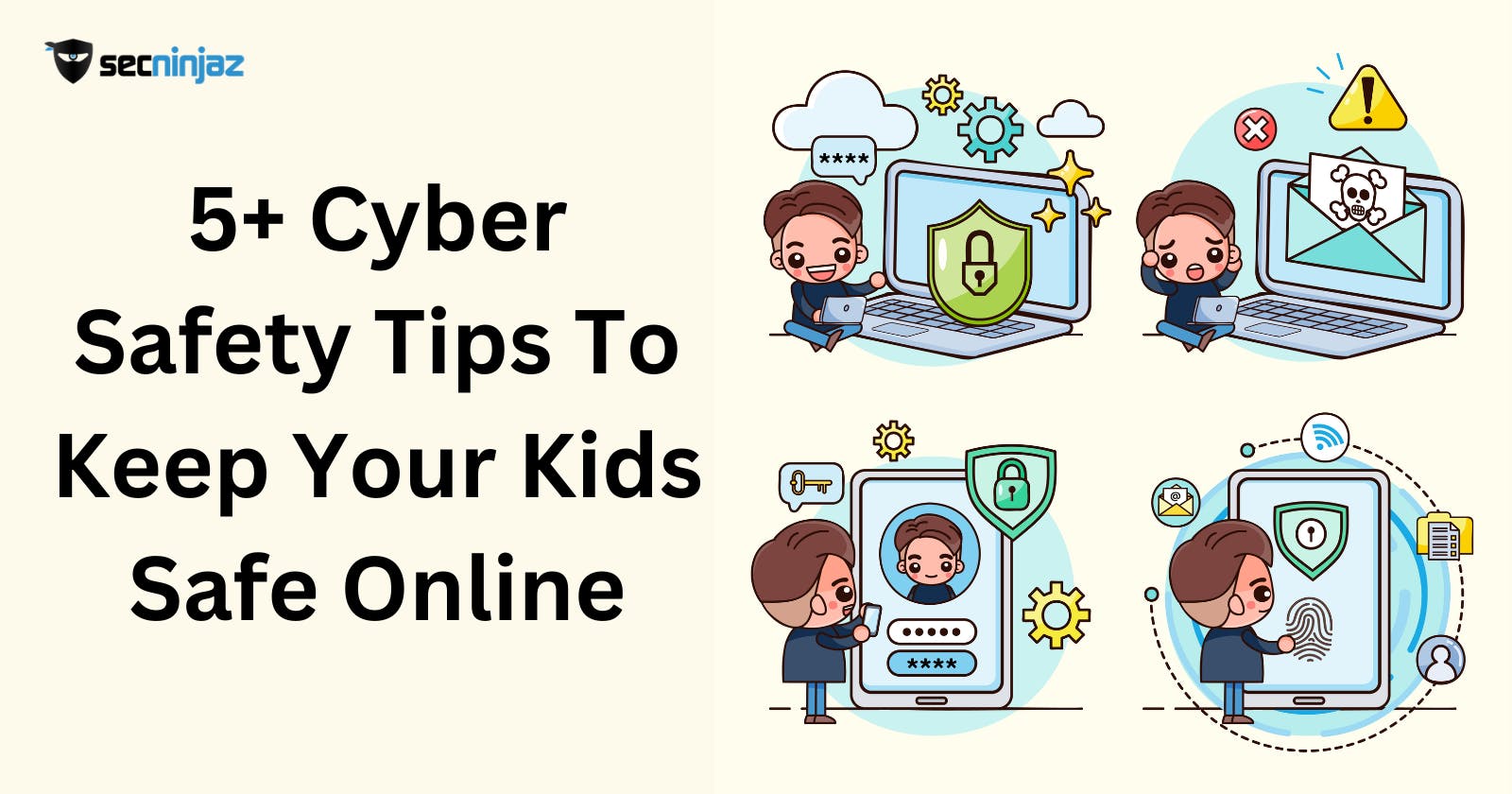5+ Cyber Safety Tips To Keep Your Kids Safe Online
In this blog there are some tips that helps to keep your kids safe online.
As the world is becoming more and more digital, every single generation is getting heavily influenced and becoming addicted to the virtual world. As we all know, how dangerous the internet can get, we will be discussing a few cyber safety tips to keep your kids safe online.
Over the past decade and a half, there has been a significant shift in the tide of age groups on social media platforms.
Source: Influencer Marketing Hub
The above image shows the rapid growth of the population using social media. Out of this population, a major percentage is children and teenagers. Among the whole population of teenagers and kids using the internet, almost 45% never go offline, they are constantly on one social media platform or the other. Even toddlers have their eyes glued to the mobile screen nowadays, though they can’t be blamed for this.
This addiction to the internet is not only making the youth lose touch with reality, but also pushing a lot of them towards various passive problems. What we see or listen to influences our minds a lot and children, no matter what age they are, are quite impressionable. In such cases, it becomes the responsibility of their parents or guardians to keep an eye on them.
How Does The Internet Influence Kids & Teenagers?
As mentioned earlier, kids and adolescents are very impressionable, when they see airbrushed and photoshopped images that every one posts on social media, their insecurity takes a new hike, and they feel pressured to do so as well. The desire and pressure to maintain a perfect image online push the children into developing an inferiority complex, self-esteem issues, body image issues and even more complex mental health issues including imposter syndrome.
Cyberbullying in adolescents is more common than you think. They cross the line and don’t even realize when they become an online bully. They forget or may not be aware of the fact that the digital footprint they leave can never be erased. Peer bullying is becoming a rage in this era, children are becoming less tolerant.
While some children become bullies, some also become targets of bullying. Children becoming the victim of peer bullying. Peer bullying online can push its victims to have depression, anxiety trauma and even more severe distress.
The internet has several grey areas or black holes that can consume innocent minds, when children venture into those areas, they are exposed to explicit and obscene things that should be out of their reach.
Safety Tips To Keep Your Kids Safe Online
Keeping your kids void of the internet is useless and not even correct, since they should hold the basic digital knowledge since it’s necessary. Instead of binding them up unnecessarily, you should set some boundaries. Here are some safety tips to keep your kids safe online -
Set An Example
Before setting up any rules for your kids, you must set an example if you want them to follow what you say. Don’t spend too much time on the screen in front of them. Children do as they see, plus, it is very crucial that you take interest in their daily activities otherwise they will have the impression that you are not interested.
Make sure not to be immersed in your gadget world while you are with your children at any time, whether you are having a meal together, whether you are dropping them off or picking them up from school. Pay attention to what your children want to share.
Don’t let them use the internet from an early age. Toddlers, kindergarteners, and primary schoolers generally have no use of the internet, so you must make sure they are connected to their surroundings rather than the virtual world. Middle schoolers may need to access the internet sometimes for their school projects. You need to monitor their screen time and what they access on the internet, you can do this by helping them with their projects. Helping your children in their projects will not only give you time to bond with them but will also help you to discreetly keep an eye on their internet activities.
Communicate With Your Children
Before you set any rules, talk to your children and explain to them why you are setting certain boundaries. Even though they are children, they may not like it when you abruptly start slapping rules on them without telling them the reason. Humans tend to gravitate toward forbidden experiences, and stopping your children from accessing the internet’s grey area without any explanation will drive them to do exactly the opposite.
While you are explaining to your children the rules, make sure you explain them in detail. Children are very curious and your half-hearted “It is not good for you” sort of explanation will not satiate them. Explain to them why some sections of the internet are not suitable for their access.
Set Boundaries
Set boundaries regarding how much time your children get to spend on the internet, the durations, and what they are or aren’t allowed to access. With a proper explanation, your children must be able to follow those rules. For extra safety, you can use tools available online to supervise your children and keep them away from explicit content.
Teach Your Children The Internet Safety Rules
- There are some basic rules that you must teach your children to stay safe online. They must never share their credentials. Today, the password is not the only thing that one should keep a secret. The whole account credentials (ID, password, recovery number, recovery mail, etc.) are categorized as sensitive information and must not be shared with anyone in any case.
- Ask them to opt for a different screen name rather than using their original names to keep their identities safe.
- Password security is also an important factor that you must teach your children. Weak passwords are prone to breaches and hacking. Teach your children to opt for a strong password, at least 8 characters long, that must have a combination of numbers, special characters, and alphabets with one or two block letters.
- Phishing scams are very common, and they are usually sent through emails, social media messages etc. Teach them not to click on any suspicious links that open to a page having a form, and never fill out their credentials. If they come across any such mail or messages, they should report them immediately.
- Prohibit them from meeting people they may have started talking to online but don’t know personally.
- If possible, monitor what they are surfing online. There are other types of content on the internet as well that may not be obscene, but are still not healthy for their minds.
Account privacy is also an important part of keeping your children safe-
Help them keep their account private by locking their profile pictures and controlling the audience of their account activities.
Monitor their activity on social media.
Ask them to block users you, or they don’t know or trust.
Posting information about their location, full birthdate, home address, phone number, holiday plans or pictures with geotags is a big no-no.
Never let them respond or message someone they do not personally know.
- Implement home security measures like firewalls and antivirus for the digital security system of your home, and instruct your children how to properly operate it to keep themselves safe in your absence.
The best way to keep your children cyber safe is to be proactive, not reactive, you should remember that they are kids, and they have a very curious minds, to direct the curiosity on a positive path is your responsibility.

